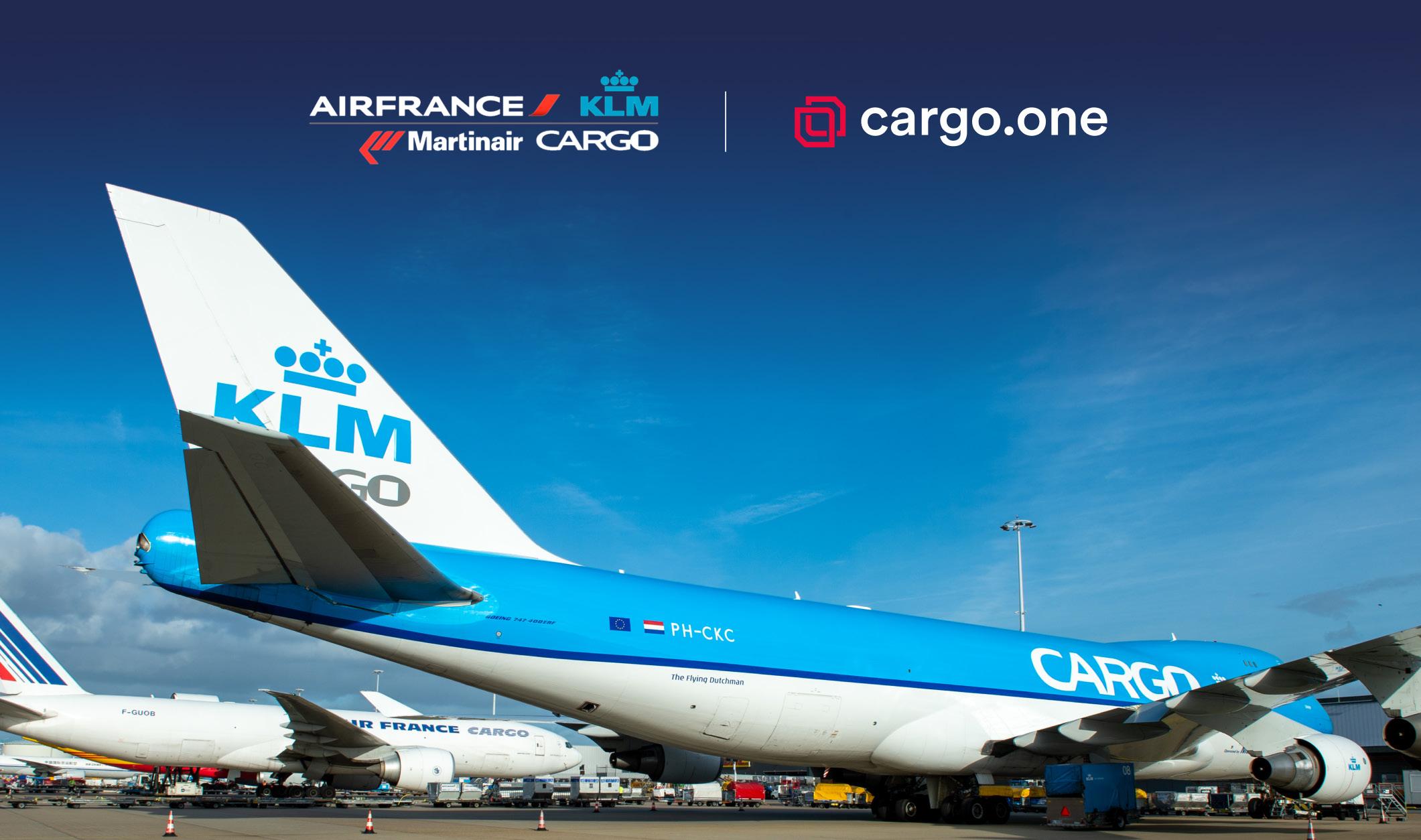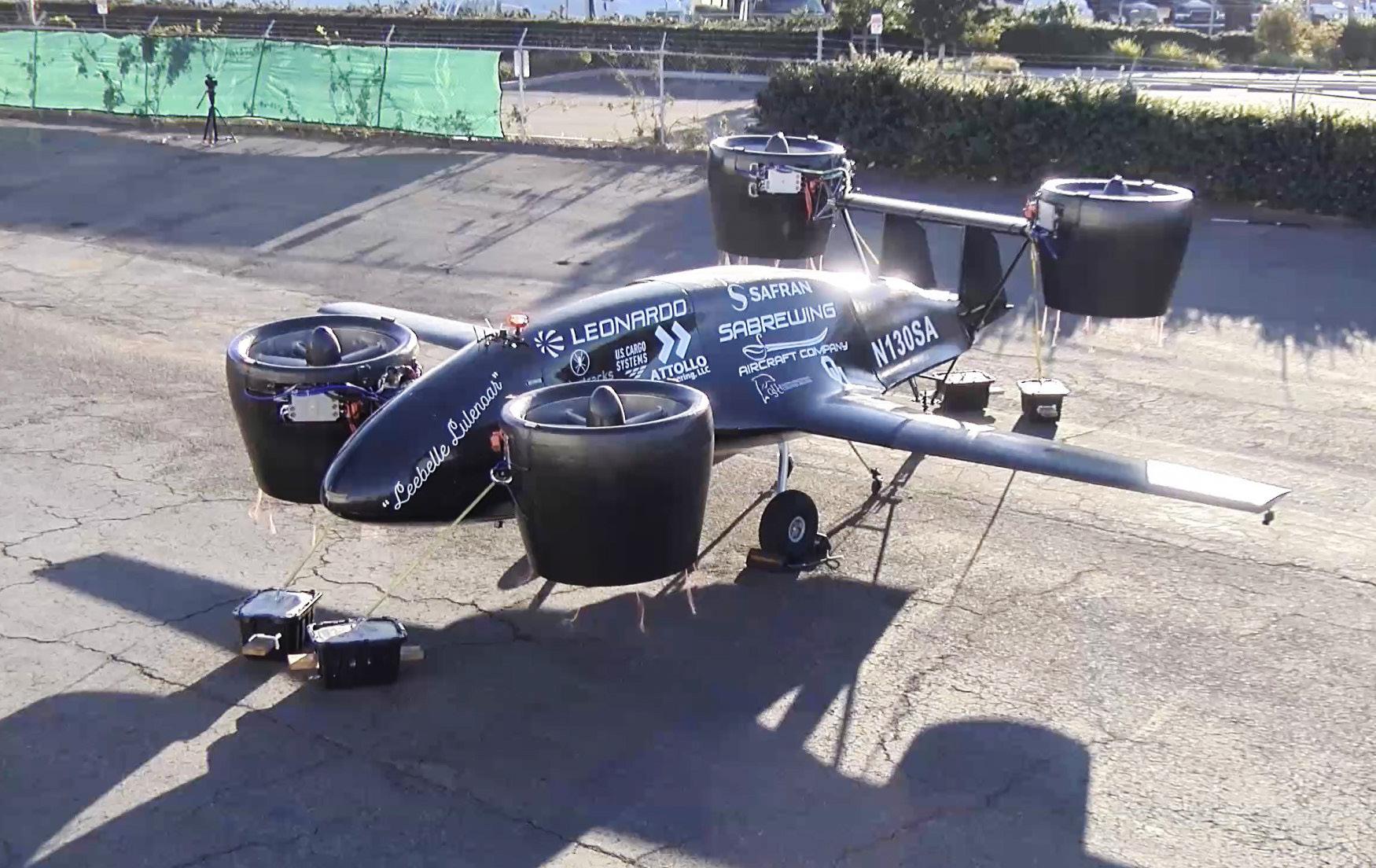
12 minute read
Routescanner
TECH & DIGITALISATION NEWS
6 OCTOBER 2022 | Source: AIR FRANCE KLM MARTINAIR CARGO AIR FRANCE KLM MARTINAIR CARGO TO EXPAND ITS DIGITAL OFFERING IN A PARTNERSHIP WITH CARGO.ONE
The airline is upgrading its advanced multi-channel digital distribution model by adding cargo.one’s booking functionality alongside its own successful myCargo offering.
This global partnership follows an extensive initiation phase with cargo. one that broadened reach and relevant customer traction.
cargo.one and Air France KLM Martinair Cargo today unveiled a partnership, bringing capacity from one of the world’s largest combined cargo airlines to one of the leading marketplaces for digital air cargo bookings. The additional, high-quality digital booking option for Air France KLM Martinair Cargo will benefit many freight forwarders and offer ideal support for the carrier’s extensive network connectivity. The airline will use this augmented distribution setup to reach more customers across most of its markets.
Combining the fleets and capabilities of two national carriers and a renowned air cargo operator, Air France KLM Martinair Cargo aims to provide seamless connections across the world. Offering 295 shipping destinations across 110 countries, its 500 aircraft fleet carried over one million tonnes of cargo in the past twelve months. Its dual hubs of Paris Charles de Gaulle and Amsterdam Airport Schiphol offer freight forwarders market-leading speed and reliability.
The airline has utilized digital distribution as a suitable extension of its mission “here to connect” – since its pioneering launch of myCargo in 2018, Air France KLM Martinair Cargo has delivered a full spectrum of digital services that allows forwarders to book, share, cancel and modify bookings online. The airline is continuing to build an extensive multichannel distribution strategy focused on deriving maximum customer value from its strong network and capabilities. Through its partnership with cargo.one, AFKLMP Cargo intends to continue expanding its digital presence and offer customers an additional booking option alongside its own myCargo online booking portal. The customer experience that cargo.one offers aligns perfectly with the high standards that AFKLMP Cargo sets.
The partnership began with an initiation phase in one of AFKLMP’s main markets, meant to expand visibility and utilize the leading digital buying journeys to improve the efficiency of digital sales handling by local airline teams. Close monitoring and evaluation of the partnership benefits showed that cargo.one has indeed expanded the reach and exposure of Air France KLM Martinair Cargo’s existing digital offering, making it a valuable addition.
Implementation will proceed market-by-market, based on customer demand. The expanded offering will make the airline available digitally to more freight forwarders in every corner of the globe and will scale the advantages of partnering with a user-focused marketplace to benefit more of the airline’s local teams.
The cooperation with cargo.one fits in with our overall channel strategy. We have our own full-service platform, myCargo, where we offer all of our services, including our most recent feature, Modify my Booking. We are investing significantly in our digital offering and expect to launch some unique new services soon in myCargo. Based on customer traction, we have decided to extend our cooperation with cargo.one by connecting our booking option. We believe this channel compliments our own online platform. We have been cooperating with third-party portals for some time now and we are delighted to add this new partnership. For us, it is key to be where our customers are! Gertjan Roelands, SVP Sales & Distribution Air France KLM Martinair Cargo
I am delighted that Air France KLM Martinair Cargo sees demonstrable value in working with us globally for its distribution. After a successful start, and gains in incremental revenue and operational efficiency, it is exciting that our teams will now continue to work closely to iterate on the industry-leading technical infrastructure, processes and expertise that the airline and cargo.one can combine in this partnership. Moritz Claussen, Founder & Co-CEO, cargo.one cargo.one also has the digital sales enablement expertise inhouse to help the airline’s teams win more business. As partners, both companies will now expand upon their proven methods of collaboration to roll out the new channel to both central and local Air France KLM Martinair Cargo sales teams.
More than ever, large airline groups, combined airlines and smaller players alike are turning to cargo.one to help accelerate their trajectory with digital cargo sales. No other external sales platform has the proven capability to help airlines boost their bottom line revenues and navigate the necessary technological and organizational changes.WANT TO TALK ABOUT YOUR OWN TECH & DIGITALISATION NEWS?
Get in touch with Freight Solutions on hello@freightsolutions.com or +1 (312) 496 6624
TECH & DIGITALISATION NEWS
8 NOVEMBER 2022 SABREWING CARGO DRONE BREAKS WORLD RECORD ON FIRST FLIGHT
US developer completes the first hover flight of its RH-1-A ‘Rhaegal’ vertical takeoff UAV, lifting a record-setting payload of 829 pounds
US cargo drone developer Sabrewing Aircraft Company has completed the first hover flight of its RH-1-A ‘Rhaegal’ vertical takeoff and landing (VTOL) air cargo drone, while lifting a world record-setting payload, the company has reported.
This pre-production air vehicle, also known as the RG-1-A ‘Alpha’ model, was able to lift a record-breaking 829-pound (374kg) payload, shattering the previous world record for the ‘dead-lift’ of any commercial, vertical takeoff, uncrewed air vehicle (UAV)”, Sabrewing reported. It describes the Rhaegal Alpha aircraft as “the world’s first autonomous cargo aircraft capable of both vertical and conventional take-off and is designed to take tons of cargo to any location on earth, in almost any weather.
This is only a fraction of what this aircraft can carry. But it proves, on our maiden flight, that we’re able to lift more cargo than any previous cargo UAV that has ever flown. Ed De Reyes, chairman & CEO, Sabrewing
The pre-production prototype aircraft weighed just over 2,700 pounds for the first flight and is capable of a maximum gross weight (with payload) of up to 3,100 pounds at altitudes up to 22,000 feet and 200 knots. When taking off conventionally, this aircraft has enough thrust to carry over 2 tons of cargo with the same range, altitude, speed, and efficiency, Sabrewing said.
It’s been a long journey to get here, but we were unwilling to compromise safety or design. Our design and tests teams – and our development partners – invested tens of thousands of hours to make this milestone such a history-making success.
Sustainable potential
The Rhaegal aircraft uses a turbo-electric drivetrain based on Safran’s Helicopter Engines turbine-based motor, the Ariel 2E. The Ariel can use 50% sustainable aviation fuel (SAF), and turns an electric generator which produces nearly 1 megawatt of electric energy which in turn then powers electric motors in each of the four ducted fans.
Design improvements to the blades, ducts, and shape of the shroud of the aircraft’s ducted fans has allowed each duct to produce 30% more thrust than it was originally designed to provide. These improvements contributed to the aircraft’s ability to lift the record-shattering payload, Sabrewing noted.
We’re able to generate more propulsive energy – much more efficiently – with a turbo-electric drivetrain and ducted fans than with batteries or directly driven by the turbine. The Safran motor is currently cleared to use 50% sustainable aviation fuel (SAF). We expect to be one of the first aircraft manufacturers to use hydrogen when Safran completes testing on their motor in the next couple of years. Oliver Garrow, Chief Technology Officer, Sabrewing
The next planned version of the Rhaegal, the RG-1-B ‘Bravo’ production aircraft, is designed for first-, middle- and last-mile cargo deliveries. Sabrewing said it can lift over 10 times more cargo than its closest competitor, fly 5 times farther, and operate in any airspace – from the most congested city to the most remote location.

It is understood that the production aircraft will be capable of transporting a cargo payload of around 5,400 pounds (2,450kg) a distance of up to 1,000 nautical miles.
With such a long range and payload capability, Sabrewing said both Rhaegal models “are excellent for disaster recovery and humanitarian missions – such as in Ukraine. The Rhaegal ‘Bravo’ is the only cargo UAV that is capable of carrying over ten different Unit Load Device (ULD) cargo containers – the same kind used by airlines for cargo. The Rhaegal can even power refrigerated cargo containers – known as ‘reefers’ – both on the ground and in the air – and has over 675 cubic feet (19 m3) of cargo space.
130 firm orders
Sabrewing currently has purchase orders for 28 of the aircraft – destined for the World Food/World Health programme – and another 102 firm orders, and letters of intent for over 400 aircraft; these orders represent a $3.2 billion order book over the next 6-7 years. The first 28 aircraft are due to begin deliveries to the first customer by December of 2023. Sabrewing also has contracts with the US Air Force to study the use of autonomous cargo delivery to austere environments, and even a demonstration of casualty evacuation for up to 8 injured persons.
As the aircraft nears certification (Sabrewing was the first VTOL company to reach a ‘Basis of Certification’ agreement with the FAA in October of 2019), Sabrewing has also been working with the European Aviation Safety Agency (EASA) to begin certification flight testing of its aircraft.
The aircraft was developed in partnership with Safran (turboshaft motors), Leonardo Aerospace (avionics), Toray (composite materials), Garmin (navigation), Attollo Engineering (LIDAR), Spider Tracks (remote positioning), US Cargo Systems (cargo floors) as well as software development by Cal State Channel Islands, The Ohio State University, UCLA and Oklahoma University.
Sabrewing claims the Rhaegal is the world’s best-in-class, most fuelefficient and maintenance-efficient cargo UAV on the market.
Will Waters, contributing editor, FORWARDER magazine
TECH & DIGITALISATION EXPERTS
Arecent United Nations (UN) report states that emissions have accelerated across all sectors. Global warming is now twice the 1.5 C limit outlined by the Paris Agreement in 2015. Now, scientists warn that this might be our last chance to reach climate goals.
Transportation is the largest-emitting sector in the United States, accounting for 27% of the nation’s emissions in 2020. About 26% of those derive from medium- to heavy-duty trucks and include last-mile deliveries.
Sustainable solutions for last-mile deliveries are a significant undertaking for today’s supply chain leaders. However, they’re necessary to combat climate change and demonstrate corporate responsibility to meet sustainability targets.
Consumer demand for sustainable products and services has also pressured companies to adopt green business models. Companies that do this can enhance their reputation for fighting climate change and boost their profits through greater energy efficiency.
The question of feasibility remains, but new electric vehicles (EVs) are a promising advancement to significantly cut last-mile supply chain emissions.

The Biden administration’s ambitious goal for EVs to account for 50% of all vehicles sold by 2030 has spurred a manufacturing boom of domestic parts and production. Companies and supply chain professionals who seize the opportunity to implement EV delivery fleets can benefit in the following four ways.
1MEET SUSTAINABILITY TARGETS Most companies have a set of sustainability targets they hope to achieve in the coming years. Part of those measures should comprise electrifying transportation to improve their carbon footprint. Walmart is one of the earlier adopters of EV fleets for last-mile deliveries, partnering with automotive startup Canoo to purchase 4,500 EVs to fulfill online orders, with the option of purchasing up to 10,000. Walmart intends to utilize these Lifestyle Delivery Vehicles (LDVs) by 2023, which will help the corporation reach its zero-emissions goal by 2040.
Electric Last Mile Solutions Inc. (ELMS) is another commercial EV startup helping to green the last-mile supply chain. The company will distribute its first order of 1,000 units of commercial 1 EVs called Urban Delivery by September 2022.
Like federal and state incentives help offset the costs of residential energy-efficiency projects, ELMS units will be priced at $25,000 after federal rebates kick in. Last-mile deliveries with EVs are indeed the future, and there are ways companies can dive in at a reasonable cost.
2IMPROVE BRAND REPUTATION As e-commerce sales grew exponentially throughout the pandemic, global carriers have struggled to keep up with fulfilling deliveries in cities with less parking availability. FedEx has since been test-piloting electric carts for deliveries throughout 10 major cities in the U.S. and Canada. So far, the program has proved successful. Results have shown an increase in deliveries by 15%, substantially higher than traditional transportation models. Furthermore, FedEx estimates it could reduce its reliance on delivery trucks by 25% per day for each route using the electric fleet. To say consumer demand has driven sustainability is an understatement. Google searches for sustainable goods saw a 71% uptick from 2016 to 2020, while 75% of millennials consider this factor before purchasing an item. However, the ability of EVs to cut emissions for last-mile deliveries opens new doors for brands and the supply chain to boost their reputation from manufacturing to order fulfillment with a sustainable courier service.
3IMPROVE AIR QUALITY Transportation emissions — for instance, nitrogen oxides (NO), carbon monoxide (CO), sulfur dioxide (SO2) and particulate matter (PM) — are known for reducing air quality and leading to public health crises and mortalities. About 7,100 deaths were attributed to vehicle emissions in the Northeast and mid-Atlantic regions in 2016 – 80% of which were from NO. Electrifying delivery fleets is more critical than ever to protect the public from harmful vehicle emissions. The primary advantage of EVs is they produce zero tailpipe emissions when operated, which decreases noxious PM and ozone. Every aspect of logistics models can safeguard clean air to avoid public health implications and high mortality. 4 DEMONSTRATE PROACTIVE MANAGEMENT Many companies and supply chains demonstrate proactive environmental, social and governance (ESG) management when they opt for EV fleets to cut last-mile delivery emissions. This helps build stakeholder confidence for better risk surveillance and enhances investment opportunities. Studies show that EVs will help lower last-mile delivery emissions by 17–26% through 2025 – an appealing endeavor for companies interested in their bottom line and investors looking to do green business.
Delivering a greener last-mile with EVs
Last-mile supply chains should harness zero-emissions EV fleets for their deliveries. Ultimately, greening all aspects of the logistics model is good for the environment and business overall.
NEW EVs COULD CUT EMISSIONS






